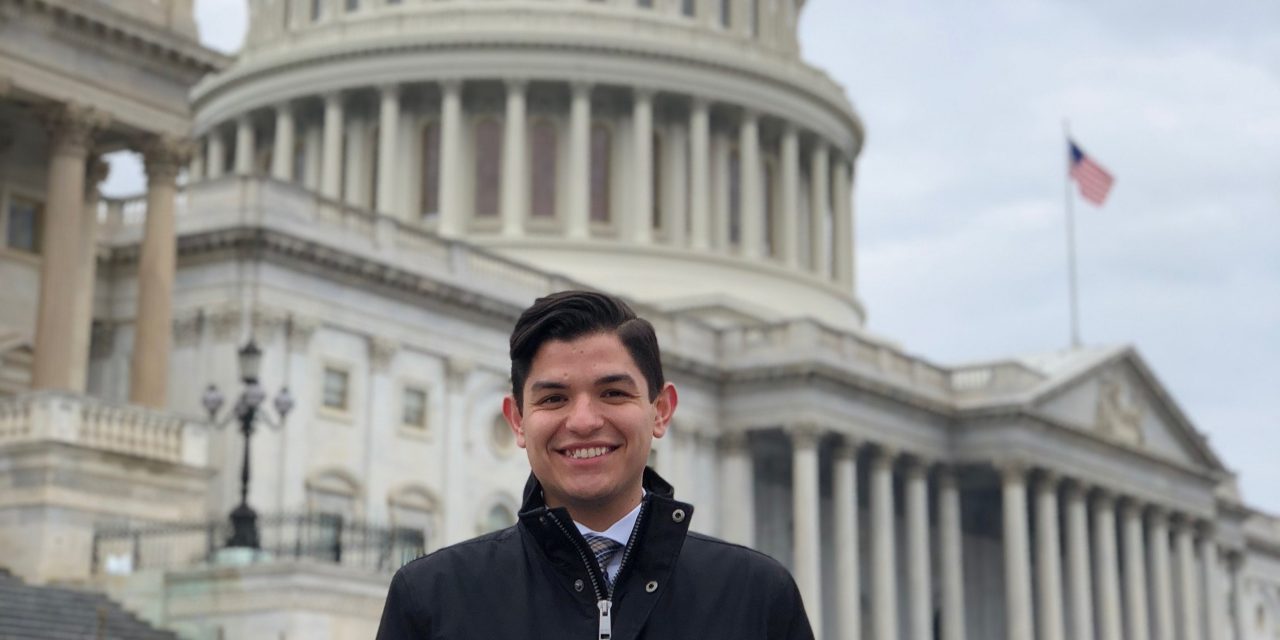On November 12, the U.S. Supreme Court will hear oral arguments regarding the legality of President Trump’s 2017 rescission of the Deferred Action for Childhood Arrivals (DACA) initiative. The court’s decision will impact the ability of nearly 700,000 DACA recipients across the country to continue to live and work in the United States without fear of deportation.
The Supreme Court’s hearing and ultimate decision on DACA will have severe implications for individuals like me—who, from a very young age, considered themselves Americans, capable of and called to contribute to this country.
Beyond a final decision on the legality of the attempted rescission of DACA, this ruling will also serve as a judgment on who we fundamentally are as Americans. An adverse decision would mean turning our backs on hundreds of thousands of young people pursuing their American dreams.
As for me, regardless of the court’s decision on DACA, I will remain committed to public service and improving the communities I call home.
In 1995, my family moved to America from Jerez, Zacatecas in search of a better life and economic opportunity.
Having lived in the United States since I was three years old, I’ve done what most Americans would consider to be the “right thing.” I set myself up for a successful personal and professional trajectory while overcoming significant barriers associated with growing up in a poor, working class household. Like my friends, classmates, and coworkers, I’ve pursued what many Americans seek: an opportunity to work toward a promising and fulfilling future for my family and me; my American Dream.
One of my most vivid childhood memories was believing that I lived on the same street as the president of the United States. Growing up on Pennsylvania Street in Denver’s Globeville neighborhood connected me with Pennsylvania Avenue in Washington, D.C. A six-year-old’s excitement at having something in common with an office symbolic of, among other things, dedication to civic duty transformed into a passion and career in public service.
From serving as student body president of the University of Colorado Student Government, to supporting legislative redistricting to maximize the representation of Colorado’s underserved communities in Congress, public service is a consistent thread throughout my life. It is one that predates the inception of DACA. My motivation has been anchored by my desire to learn of ways to make a meaningful impact for the community I grew up in.
Like so many in this country, I’ve overcome adversity in pursuit of a fair shot at the opportunity to achieve my goals, ambitions, and dreams. It’s been through this adversity that I’ve realized how, as Americans, the challenges we face and aspirations we hold aren’t all too different from one another. We all just want a fair shot at good jobs and the ability to help the people we care about most. This realization fuels my dedication to work toward identifying strategies, policies, and initiatives to strengthen and improve American communities.
Today, I’m a graduate student pursuing a Master’s degree with a focus on Social Policy. I’m working to support the implementation of the Opportunity Zone program in tribal and rural communities across Washington State. These programs help to incentivize investment in economically distressed communities, and I am working to support communities in Washington as they develop specific projects for investment.
I’ve come to believe in the power of community economic development to transform and unlock opportunity for various communities across our country, and DACA has helped me to reach this point in my career. An adverse decision by the Supreme Court would inhibit my ability to leverage my passion and expertise in serving my community.
I refuse to let my passion for public service, commitment to civic responsibility, and dedication to working toward improving the lives of the people around me to be defined by my status as a DACA beneficiary.
But in this matter, which will affect my own life and trajectory, as well as many others, I can only hope the court rules in DACA’s favor for my sake and the sake of our country.
Marco Dorado is graduate student at the University of Washington pursuing a Master’s of Public Administration Degree with a focus on Social Policy.
FILED UNDER: Supreme Court


